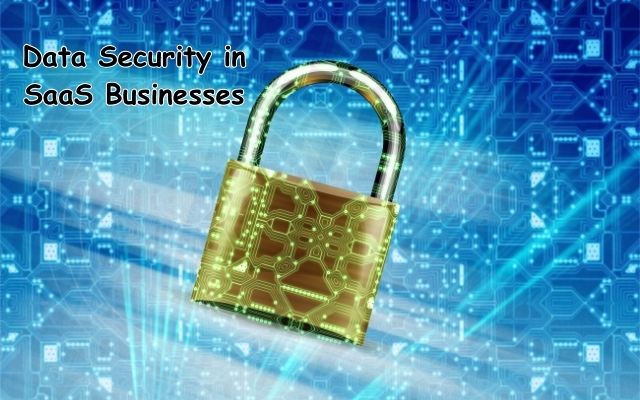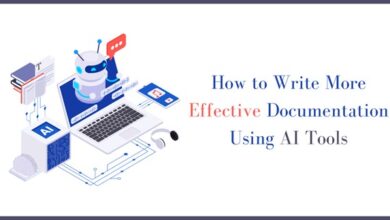Ensuring Data Security in SaaS Businesses: A Comprehensive Guide

When considering Software as a Service (SaaS) businesses in recent years, individuals have increasingly favored such organizations. These enterprises offer internet-based app software accessible to customers for utilization through the web. SaaS software benefits both users and providers but also introduces unique data security concerns. Data Security in SaaS Businesses: Mitigating Risks in the Cloud Era.
It is imperative to implement a tailored saas business plan for data protection within your SaaS business. Such a plan outlines the required components to safeguard private information from potential risks. It serves not only to shield from cyberattacks but also to engender confidence with clients by demonstrating concern for maintaining the privacy of their data.
Protecting customer information from unauthorized access or theft is a top priority for SaaS companies as the frequency of computer hacks continues to rise. It is imperative that businesses diligently safeguard their clients’ private and confidential details.
We will explore some of the key challenges SaaS firms encounter regarding data security and recommend potential solutions to remedy such issues. By properly addressing vulnerabilities and implementing strategic countermeasures, companies can better shield sensitive user data from those intending harm.
Lack of Customer Information Management
While personal information exchanged during SaaS registration requires protection, companies must appropriately handle user data as regulations differ internationally. If a customer shares private details with the expectation their credentials and location will remain confidential. Thus, providers take precautions to secure this sensitive information abiding by all relevant rules depending on client geography.
While SaaS companies work diligently to secure customer information, the data ultimately belongs to the users themselves. Though firms implement robust security measures, individuals remain responsible for credential protection. It is imperative, therefore, that businesses effectively educate clients about data safeguarding practices and the importance of robust passwords. A well-rounded strategy should also cover additional safety precautions.
Guaranteeing the Security and Privacy of Data
Making client information private and secure should be a top priority for any business utilizing Software as a service solution. This is especially crucial for companies that process sensitive health or financial records. Providers must implement robust verification protocols to authenticate users, such as multi-factor identification and stringent data access controls to prevent unauthorized access.
By diligently safeguarding confidential details from improper disclosure, services can help reassure customers that their personal details are remain shielded from unwanted exposure. Moreover, continuous monitoring of security measures allows vendors to promptly identify and remedy potential vulnerabilities, helping to maintain robust protections over time.
Cybersecurity Threats
Companies providing online services must carefully consider significant security concerns. Cyber threats can stem from a diverse range of sources such as hackers, susceptible software, or even insider risks. Healthcare organizations would be wise to implement prudent precautions such as routinely examining security protocols and establishing suitable restrictions for sensitive data. Such measures can more effectively counterbalance these cyber risks.
Ensuring Regulatory Compliance by Abiding with Data Protection Laws
Ensuring customer information remains safe and secure should always be a leading goal for software firms, as numerous regulations aim to shelter user privacy. Laws such as the General Data Protection Regulation (GDPR) and the California Consumer Privacy Act (CCPA) describe what companies must do to appropriately manage and fortify consumer data.
If these directives are not followed, firms may face considerable monetary penalties or authorized issues. Consequently, it is vital for suppliers to investigate such statutes and execute the significant policies and processes mandatory for conformity. With delicate data involved, user reliance must be preserved through watchful supervision and accountable behaviors.
Exposing the Potential Threats of Security Vulnerabilities
Healthcare firms must thoughtfully consider relying on third parties to perform important tasks like customer service or payment handling, as outsourcing sensitive roles can introduce security vulnerabilities that dedicated providers aim to minimize. Protecting the privacy and safety of patient information is paramount, so organizations should confirm they implement strong security practices and routinely evaluate adherence to relevant rules. This careful strategy helps shield confidential details and fulfill legal duties.
Unveiling the Tripartite SaaS Security Framework
There are a few key aspects one must always consider when ensuring security for software hosted in the cloud.
User-Level Security:
When using software as a service, the security measures employed at the user level play a crucial initial role in protecting against potential threats. Maintaining robust passwords, implementing two-factor authentication, and monitoring how individuals interact with the system are some of the techniques that comprise user-level safety.
Additionally, educating end-users about practicing cyber safety helps to reinforce secure online behavior. As the frontline of defense, taking proactive steps like these is significant because users ultimately bear responsibility for their own digital well-being. Overall, exercising vigilance in one’s online activities and implementing basic security protocols serves as a frontline of protection.
Application Level Security:
The second part of keeping SaaS secure is the program itself. Suppliers of SaaS (Software as a Service) should use safe ways to make code, so attackers can’t take advantage of weaknesses. This covers checking code often, testing for weaknesses, and using safety tools. Also, important information needs to be protected when it’s sitting still and moving. We do this by using encryption so others can’t see what we are sharing.
Infrastructure Level Security:
The last part of keeping SaaS safe is defending the setup where the program works. This can be in a private data center or public cloud. This part involves firewalls, and systems for spotting and blocking attacks along with managing security information and events. The equipment should also be often watched to spot any strange actions or possible dangers.
What kind of information needs to be kept safe?
In the field of SaaS companies, different kinds of info need to be tightly guarded. Important personal information like names, home addresses, and social security numbers are the main targets. This is because they can be used in a harmful way to take over someone’s identity.
We also need strong safeguards for money information like credit card and bank account details because the bad results of fraud with these can be very extreme. Healthcare data is a private type. It often has secret medical records and histories. Important Business Information, like secret plans and ideas, must also be kept safe to stay ahead of competition rules.
This helps you keep the upper hand in business. Finally, User-Made Data like what users do and how they act needs to be guarded. This data can give good information about user likes and habits but if it is used wrongly then there could be problems with privacy.
The growing fame of SaaS companies is coming with special data security problems. Service providers need to make sure they keep their customers’ information safe and private. This means teaching customers about safety rules, putting in place strong security steps, following laws for protecting data, and often checking on their safety situation. By doing these things, SaaS companies can earn their customers’ trust and become trusted providers of software apps on the cloud.




![idigitalpreneur .com [peopleperhour] – idigitalpreneur com, fiver .com jobs, bizgurukul .com - 15 idigitalpreneur](https://techmodena.com/wp-content/uploads/2023/12/idigitalpreneur-390x220.jpg)

